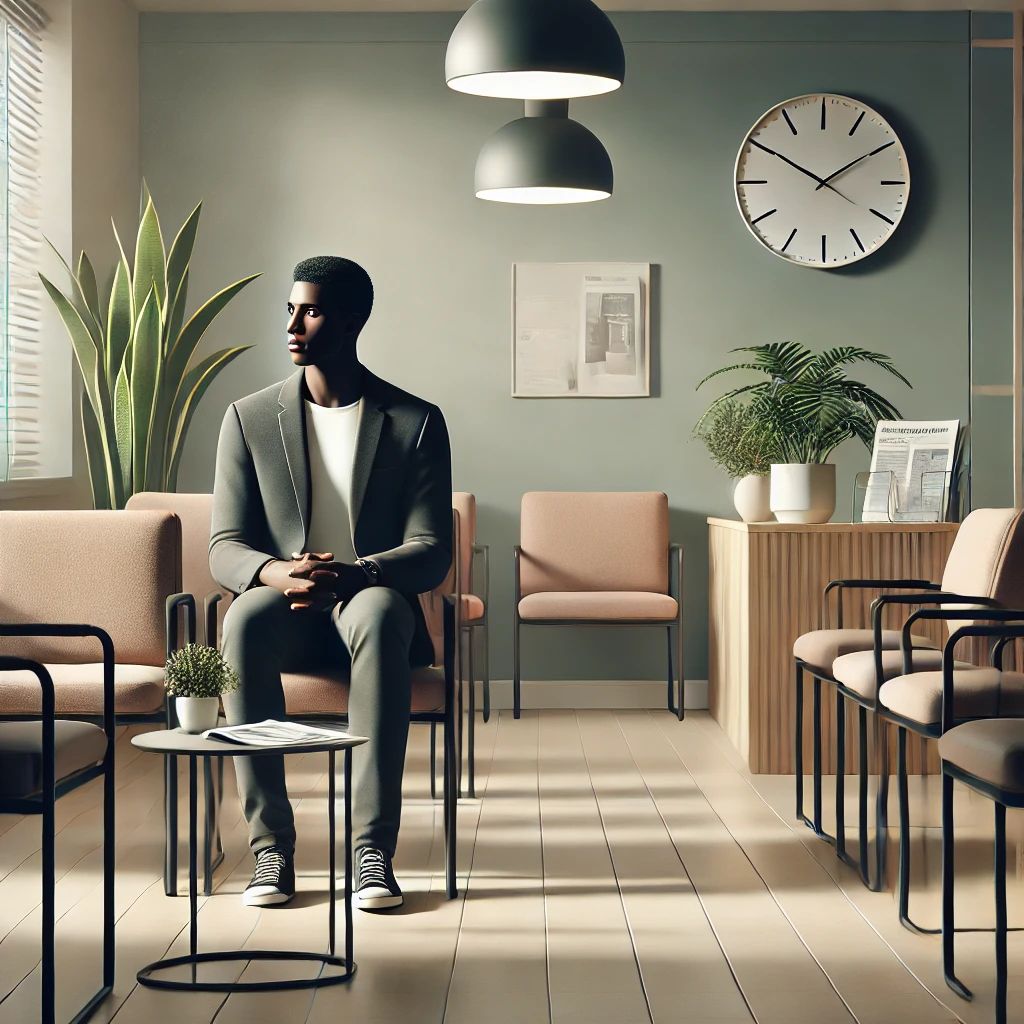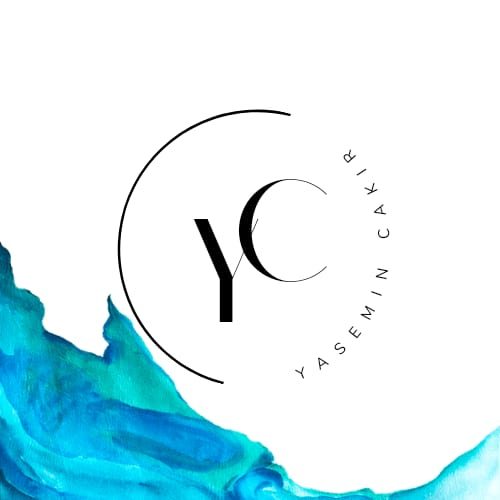As I leave another appointment, despite being unbelievably grateful for the support I’m receiving, I’m left feeling shaky after the realisation that I will wait almost 10 days to see a professional again. I still have just under 48 hours for my trauma group, and although that’s a support system many don’t have, it still has its difficulties when it comes to navigating healing throughout.
I will be discussing the difficulty in being ‘In Treatment’ and how much resilience it takes as well as some pointers on how to get through the moments we don’t have immediate support.
Gaps Between Appointments
With each hour differing from the next, it can be difficult to wait days, weeks, or, in some cases, months to see a professional. I have gone from 24/7 support to once a week/fortnight in the space of a day and vice versa. Perhaps if the treatment and support were never paused, there wouldn’t be as many relapses. I, of course, understand that there has to be self-inflicted healing, and there has to be time for one to reflect and “learn to cope” on their own; however it would be wrong to deny the faults in the system that focus on ‘calendar days/weeks’ in treatment rather than the individual journey.
In my second week, I thought I would be discharged and looked forward to it, and now in week 13, I am panicking because I don’t have support for another 9 days. As I say it for bad, I say it for good. It’s not linear.
I feel I benefit greatly from 1-2-1 support and think it to be the most valuable part in my healing, above medication, above group therapy, above mindfulness, and self-healing so feeling the comfort of this one day and it being pulled back the next day can cause a range of emotions for me, ranging from rejection, feeling unwanted, uncared for. My first thought is that this decision has been made because they (those providing me care) hate me. Knowing that this is very unlikely doesn’t help, and I begin my journey revisiting all my traumas involving rejection. Feeling unworthy, full of self-doubt, and loss of identity. Something that in the setting I am in, arguably should be forseen.

Changes in Healthcare Professionals/Providers
Another thing that I find difficult for very similar reasons to the above is changes in professionals or care providers.
I feel that once I have formed a connection with that person, once they have come to know me, knowing my triggers and traumas, knowing my personality, what matters to me, what fuels my passion, it’s hard for me to then be changed to a new professional. Being sign-posted is often seen as a ‘new beginning’ for many, and ‘a great new opportunity for help’, but it’s hard to ignore how difficult this can be for the patients. The unknown of the new responsible, their lack of knowledge on you or your background, the patient having to ‘restart their journey’ each time can be emotionally exhausting.
I do acknowledge that I may be overly sensitive on this subject due to my idolisational traits but I think the struggles could be overcome greatly by slowly introducing the new healthcare provider and caregiver prior to completely leaving the care of the current one. With healthcare services working together, not only can there be a better understanding from a professional and personal view for the new caregiver, but also provide the patient with great support in articulating their feelings, ensuring that the new healthcare provider has a broad view, relieving stress of ‘having to start again’ with each signposting.
Medication Adjustments
From therapies to medicinal cannabis, to dozens of traditional pharmaceutical medications, I’ve tried a lot. Each time, you’re asked to wait around 4-6 weeks for the medication to show full effect, within which your symptoms are likely to increase prior to decreasing, making it hard for patients to validate their emotions. I personally find it difficult, not knowing what is caused by a trigger, what is caused by my medication may it be an adverse effect or the initial adjustment period, whether it’s caused by the way my other medications react with it, or whether it’s a normal response or not.
I think a system where patients very basically and easily log their daily progress multiple times a day can provide an insight where professionals will better be able to decipher the data may be beneficial, this way the consistencies, or lack of, will be able to provide insight to the medication effects and the treatment journey in whole. It can also alleviate the pressure on the patients to provide solely memory-based information, which can be difficult to process correctly in moments of emotional disregulation.
The ‘Label Shuffle’
I’ve seen myself fly through diagnosis, with Depression, anxiety, ADD, CPTSD (back in the day PPD), and now possibly EUPD. I thought I was settled on my diagnosis within simply Depression, Anxiety, and CPTSD, but the addition of ADD earlier this year and now the possibility of EUPD has felt especially heavy.
I felt familiar with my diagnosis, I felt I understood them, so I felt understood too, but now the rocking of a newly found peace of 20 years of uncertainty has been rough. For some, being able to have a diagnosis means a lot, for some others, it means very little. For me, I simply care about it opening up additional avenues for myself to get more help than I currently am, to further heal…
I, of course, know the stigma that follows each new diagnosis, with each diagnosis carrying new stereotypes and I feel it heavily, overtly, and covertly on a regular basis, and it would be impossible not to mention the confusion and isolation that may follow on from this.
‘In The Meantime’ coping mechanisms
This can vary greatly from person to person, and even after finding the techniques that work, they may not work all the time. This being said, I have found multiple coping techniques to be beneficial throughout my time in between professional support.
Not everyone can do their passions from home, I’m one of those people, so I chose to blog about them here instead, something everyone with access to a computer can do.
I find that nature helps me immensely, even if this is simply walking into my garden and crunching a leaf in my hand or taking my shoes off to feel the grass beneath my feet.

I have made myself a ‘peace’ room with ambience lighting, essential oils in a humidifier, calm nature noises on Alexa, a weighted blanket, and my favourite things such as my books, my photographs of special people and objects of special things to remind me of love, to awards and certificates to show myself I am capable, poetry to remind myself I’m artistic and self-care items such as face masks, body creams, nail varnish and so forth to remind myself that I am worthy of time and self prioritisation. I understand I am very fortunate to have the space to do so; however, this can be adjusted to a section of the room that is for your peace, or even a ‘peace box’ which you can use to retreat into a calm space of the house such as the bedroom and in this time, it’s important to have boundaries for you self-care, such as requesting not to be disturbed for a certain amount of time, reducing stimulants such as phones or other technological devices and so on…
I have also downloaded an app called Finch and have been using it for 3 consecutive months now, every day. It is basically just a personalised to-do lost of self care, and you grow an animated bird whilst doing so. It’s just a calm, compassionate place to go to when you reach for your phone and ticking off a virtual list and getting ‘rewards’ for them and seeing something grow as a result of it has been surprisingly helpful. It’s the small things.
I guess this brings us back to one of my favourite thoughts, which is ‘that I have already survived every day I thought I couldn’t’ and despite being in a panic an hour or two ago when first starting writing this blog, I am now already in a better place as throughout this healing journey I have further been able to identify when I require self-care and have become more successful at doing so.
It’s hard and can feel lonely, scary, and even like a step back when you’re in the mist of treatment but it’s important to remember that the days do pass and even me, writing this now, I have survived 13 weeks more than I thought I could, just this ‘breakdown’ never mind the past 20 years behind me. I refuse to ignore the power it has taken me and hope anyone who resonates with this can also give themselves a pat on the back.
Medical intervention is part time, we are with ourselves 24/7 for the rest of our lives, so it’s important that we know how to love and care for ourselves first.
“How we view ourselves is so critical. Be kind to yourself. Respect yourself. Forgive yourself. Don’t look outside yourself for validation. Find peace within.”
Elif Şafak
